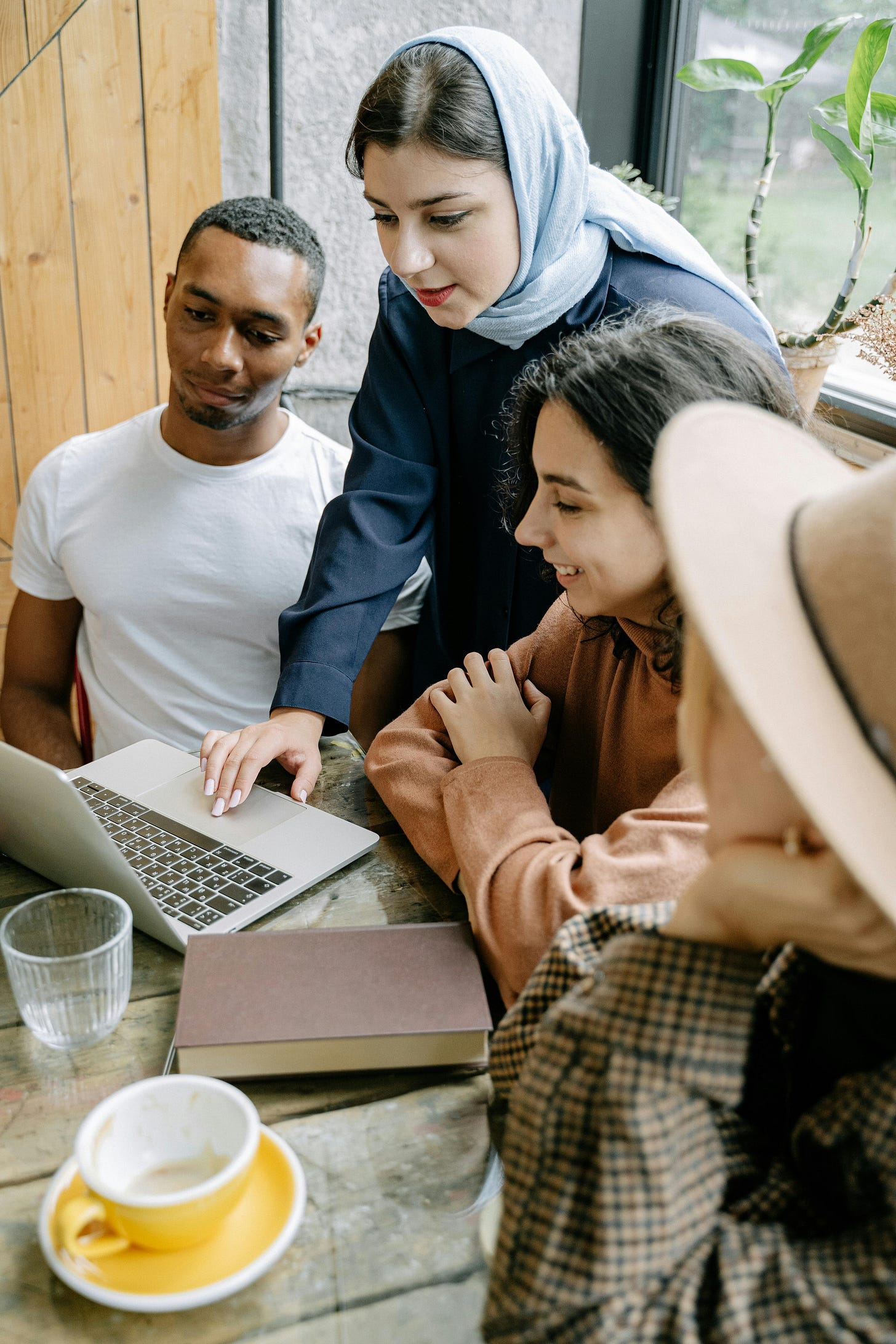Prefigurative Community Building (Part 27)
Liberation Schools & Radical Study Groups: Learning as a Power With Pattern

For most of us, school taught obedience before curiosity. We were trained to absorb information, not question it, and to compete, not collaborate. But learning has always been a collective act of survival and freedom. From the secret literacy schools of enslaved Africans to the self-organized teach-ins of student uprisings, education has long been a battleground for power.
We live in a world where misinformation, isolation, and systemic inequity shape what we’re allowed to know. In this context, study groups and liberation schools offer a return to the roots of collective learning: spaces where we learn not just about the world, but how to change it.
This guide is for anyone who wants to start a radical study group as a Power With coordination pattern, without hierarchy, without gatekeepers, and without reproducing systems of domination. It’s not a curriculum or a toolkit. It’s a shared invitation to co-learn.
Step-by-Step Guide: Starting a Liberation Study Group (Power With Approach)
Step 1: Gather a Core Circle
Start with a few people who feel the itch to study together,
friends, comrades, neighbors. Keep it small at first (3–6 people is ideal). Choose curiosity over credentials. You don’t need an expert, just a commitment to shared inquiry.
Helpful Resource:
Step 2: Decide What You Want to Learn, Together
Pick a focus that feels alive to your group: abolition, disability justice, Black radical tradition, indigenous sovereignty, mutual aid, degrowth, etc. Frame it as a question, not a syllabus. Ask: What are we trying to understand better, and why does it matter right now?
Reading Lists and Curricula:
Step 3: Co-create Agreements for Power With
Before you dive into content, set up shared agreements for how you’ll learn together. This is your first act of Power With: how you distribute voice, hold accountability, and protect each other from harm.
Key agreements might include:
Rotate facilitation
No hierarchy of knowledge
Honor lived experience
Commit to calling in, not calling out
Build access into every session
Resource:
Step 4: Choose Materials & Modes that Decenter Dominance
Include zines, podcasts, poetry, oral histories, not just academic texts. Read aloud. Watch a documentary. Draw and reflect. Make sure what you study reflects many forms of knowledge, not just white, male, cis, able-bodied theory.
Liberatory Libraries:
Step 5: Meet Regularly & Reflect Collectively
Keep a consistent rhythm, weekly, biweekly, or monthly. Rotate facilitation. Open with check-ins, close with what resonated. Make space for feelings, not just ideas. Ask often: Are we still learning in a way that feels liberating? Change course if needed.
Facilitation Toolkits:
Step 6: Practice What You’re Learning
Don’t let the study stay on paper. If you’re reading about mutual aid, start a food distribution. If you’re studying abolition, do court support. Learning through action closes the loop, knowledge becomes transformation.
Helpful Tools:
Step 7: Decentralize and Duplicate
Once your group feels strong, invite others to form their own. Share your methods, not your leadership. Start a hub of interlinked study circles that meet locally or virtually. Offer mentorship, not oversight.
Example Frameworks:
Real-World Examples
1. Study and Struggle
Based in the U.S. South, this project organizes political education and mutual aid with incarcerated people and local communities. Their approach is rooted in abolition, Black liberation, and shared inquiry, not top-down pedagogy. They publish accessible study guides for free.
https://www.studyandstruggle.com
2. Mayday Rooms (London, UK)
Mayday Rooms houses a radical archive and regularly hosts autonomous study groups and political education projects. Their approach centers archival recovery, experimental learning, and collective memory as tools for resistance.
Conclusion: Unlearning Domination While We Learn Liberation
Study groups aren’t just about what we learn, they’re about how we learn. And if we get the “how” wrong, we can reproduce the very systems we’re trying to dismantle. That’s why starting with Power With, from shared agreements to collaborative meaning-making, is essential. Not just for accessibility, but for justice.
Liberation schools aren’t meant to scale like franchises. They’re meant to spread, like wildfire, like mycelium, like whispers in the dark. Each new circle of inquiry helps illuminate a new path toward freedom.
Learning together is an act of care. And in a world built on domination, care is a kind of resistance we can all practice right now.



